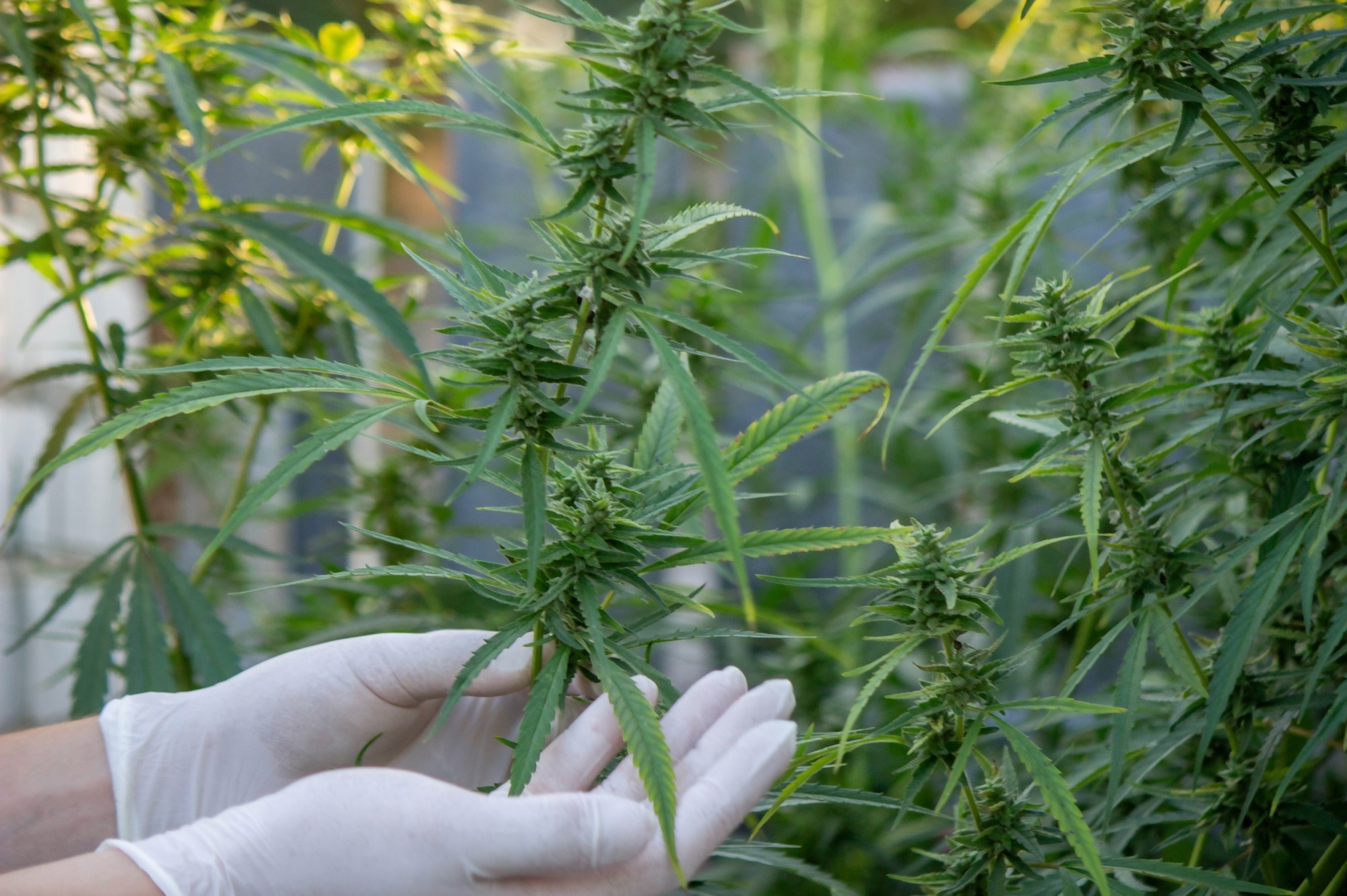The increase in cannabis consumption worldwide and the efforts to legalize cannabis use in many countries have emphasized the need to understand the biological impact of cannabis use, especially on mental health.
This need is further supported by the growing number of cannabis use disorders, with studies reporting a dose-dependent relationship between cannabis use and psychosis.
In a recent study published in Molecular Psychiatry, an international team of researchers examined the link between high-potency cannabis use and epigenetic modifications of deoxyribonucleic acid (DNA), such as DNA methylation, that result in changes in gene activity.
 Study: Methylomic signature of current cannabis use in two first-episode psychosis cohorts. Image Credit: Anuta23/Shutterstock.com
Study: Methylomic signature of current cannabis use in two first-episode psychosis cohorts. Image Credit: Anuta23/Shutterstock.com
Background
Cannabis use has been increasing globally, raising concerns about its impact on mental health, especially the risk of psychosis. The consumption of high-potency cannabis with elevated levels of tetrahydrocannabinol (THC) has been linked to an increased risk of psychotic disorders, especially with daily consumption and early use.
Studies have also suggested that the relationship between cannabis use and mental health is complex and involves various biological and genetic factors.
Epigenetic modification is one of the factors that can significantly impact disease risk and gene activity, and substantial research has been conducted on DNA methylation changes due to tobacco use. However, the impact of cannabis on DNA methylation patterns remains unclear.
About the study
The present study aimed to explore how current cannabis use, particularly of the high-potency variety, affected DNA methylation and whether this association was influenced by first-episode psychosis.
The study involved two cohorts — the Genetics And Psychosis (GAP) study and the EUropean network of national schizophrenia networks studying Gene-Environment Interactions (EU-GEI) study, both of which had recruited individuals with first-episode psychosis, as well as healthy controls. Both cohorts also included frequent cannabis users and non-users.
Blood samples were collected from the participants from both cohorts to analyze the DNA methylation patterns, focusing on individuals who were frequent users of high-potency cannabis, which contained equal to or greater than 10% THC.
Standard methods were used to extract DNA from the blood samples, after which genome-wide DNA methylation was analyzed using Illumina arrays. The study targeted over 850,000 sites in the EU-GEI cohort and 450,000 sites in the samples from the GAP cohort.
These sites were subjected to quality control, and a final set of 430,660 sites in the GAP cohort and 808,513 sites in the EU-GEI cohort were analyzed.
The researchers used linear regression models to identify associations between cannabis use and DNA methylation changes while adjusting for factors such as sex, age, ethnicity, smoking status, and cell proportions.
They also examined the impact of high-potency cannabis by filtering the data to include only frequent users of high-potency cannabis. Furthermore, separate models were used to explore the relationship between cannabis use and first-episode psychosis status.
Additionally, the researchers performed a meta-analysis of the data from both cohorts to combine the results. They also conducted pathway analysis and identification of differentially methylated regions to explore the molecular pathways that were affected by cannabis use.
The study included a calculation of epigenetic age acceleration using four epigenetic clocks and an evaluation of the association between cannabis use and age acceleration.
Major findings
The researchers found that current cannabis use involving high-potency cannabis was associated with DNA methylation changes in genes involved in mitochondrial function. Furthermore, these changes were independent of the epigenetic effects of tobacco use.
Differentially methylated regions and positions were identified in the genes related to mitochondrial processes, including mitochondrial calcium uniporter (MCU) and caveolae-associated protein 1 (CAVIN1) genes, that are involved in calcium uptake and mitochondrial bioenergetics, respectively.
The study also identified a hypomethylated region near the DNA topoisomerase I mitochondrial (TOP1MT) gene, which regulates the mitochondrial DNA.
Furthermore, in individuals who frequently used high-potency cannabis, significant differences in epigenetic markers were noted, including differentially methylated positions in the genes involved in immune processes.
The study also highlighted the role of the mitochondrial cannabinoid 1 receptors, which are activated by cannabinoids and influence cellular respiration and calcium regulation in the mitochondria, with potential influence over behavioral and cognitive functions.
Importantly, the results suggested that cannabis use could impair mitochondrial bioenergetics in the brain, which could potentially lead to neuronal dysfunctions and increase the risk of psychosis.
The researchers also discovered that first-episode psychosis status might influence the epigenetic changes due to cannabis use, particularly for mitochondrial genes. However, no evidence was found for epigenetic age acceleration in cannabis users when the analysis was controlled for tobacco use.
Conclusions
Overall, the research demonstrated that regular cannabis use, especially of the high-potency variety, is linked to significant epigenetic changes involving alterations in DNA methylation in genes involved in immune and mitochondrial function.
These findings provided insights into how the frequent use of cannabis could impact brain function and contribute to the risk of psychosis, warranting further investigation into the long-term impacts of cannabis use on the genome.
Journal reference:
-
Dempster, E. L., Chloe, Burrage, J., Hannon, E., Quattrone, D., Trotta, G., Rodriguez, V., Alameda, L., Spinazzola, E., Tripoli, G., Austin-Zimmerman, I., Li, Z., Gayer-Anderson, C., Freeman, T. P., Johnson, E. C., Jongsma, H. E., Stilo, S., Cascia, L., Ferraro, L., & Barbera, L. (2024). Methylomic signature of current cannabis use in two first-episode psychosis cohorts. Molecular Psychiatry. doi:10.1038/s41380024026890. https://www.nature.com/articles/s41380-024-02689-0